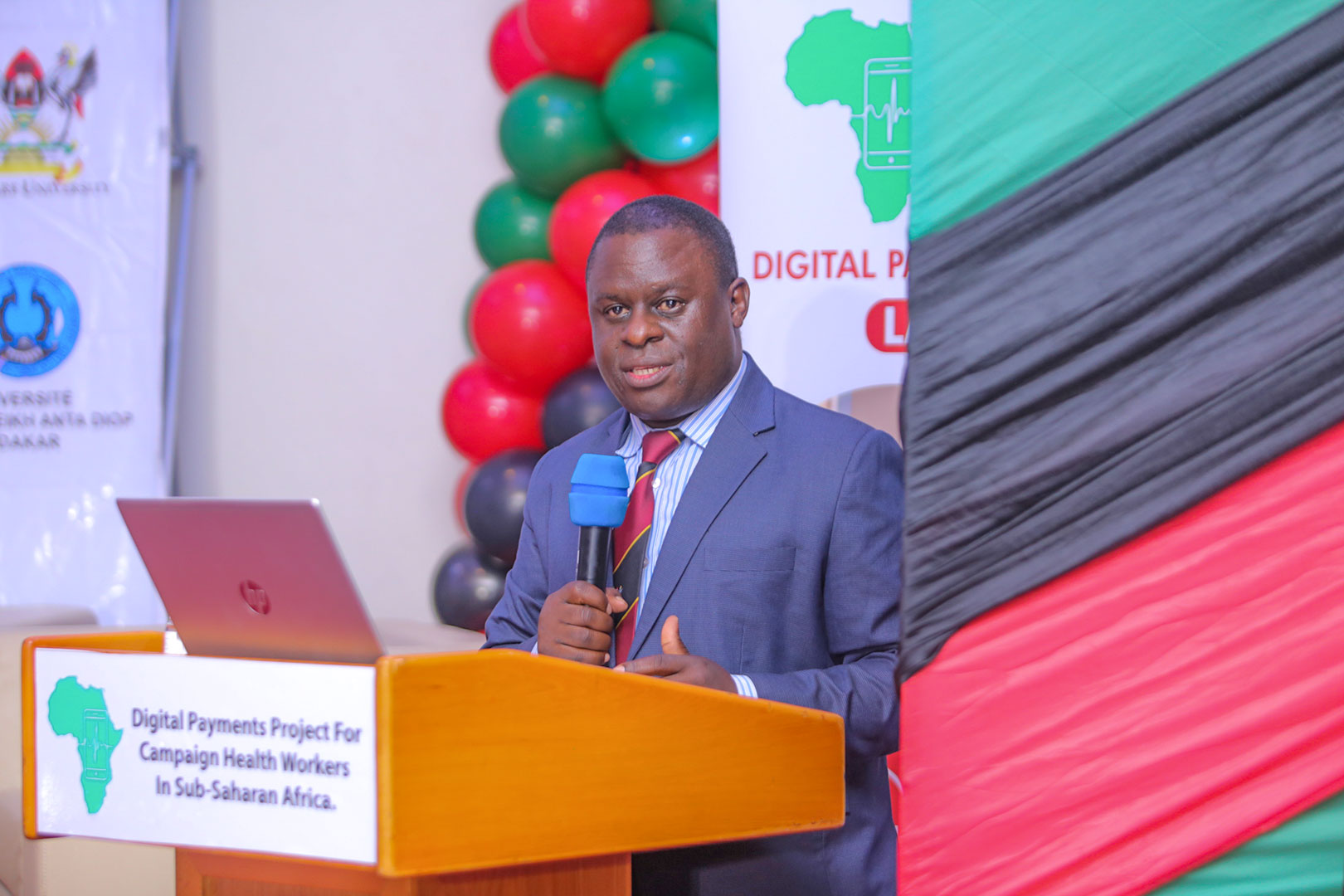(Prof. Peter Waiswa, Project Director at the DHPI-R project launch said the project will study the effectiveness of digital innovations where they will partner with mobile money operators to establish among others the preferred mobile money providers for health workers and what costs are incurred in the process of digital transfers)
KAMPALA – Makerere University School of Public Health (MakSPH) in collaboration with the University of Dakar in Senegal has officially launched the digital payments project for campaign health workers in sub- Saharan Africa.
The project is a three-year investment from the Bill and Melinda Gates Foundation that is focused on generating high-quality evidence on the value of digital payments of health workers on the effectiveness and quality of immunization and other health campaigns in Sub-Saharan Africa.
The Digital Payments Project is intended to.
- Provide strategic funding for research that will be generated to meet the evidence demands of health partners who are already looking for digital payment solutions.
- Encourage greater attention to their value as a critical strategy for health system strengthening because of its ability to improve the timeliness of efficiency of health workforce payments.
- Through a community of practice, use a collaborative process to synthesize and share good practices, unintended outcomes, risks, and resolutions for various health worker digital payments in Africa.
Speaking at the hybrid launch of the project, Dr. Elizeus Rutebemberwa, an associate professor in the Department of Health Policy, Planning and Management who represented Prof. Rhoda Wanyenze, the Dean at the MakSPH, noted that research is a core function of Makerere University, and Makerere is aiming at being research-led University. This aligns as well to having a transformative education within the School of Public Health and knowledge generation and translation.
Dr. Elizeus further explained that harnessing digital solutions for health workers will strengthen the response to emergencies in the continent through ensuring rapid reliable and efficient payment of frontline workers involved in specifically immunization campaigns at the start before the payment system is widely rolled out.
Prof. Peter Waiswa, the Director Digital Payment Project said that the initial project seeks to identify how, and under what circumstances digital payment of health workers can support effective campaign delivery and enhance efforts to digitize payments for health workers by fostering and supporting evidence-based and evidence-driven decision making in Africa.
Prof. Waiswa revealed that the Digital Health and Innovations project launched today will be implemented in Anglophone countries by Makerere University in Uganda and Francophone countries by Dakar University in Senegal.
During an exclusive interview with journalists at the Kampala Serena hotel, Prof Waiswa noted that the project will study the effectiveness of digital innovations over the next three years where they will partner with mobile money operators to establish among others the preferred mobile money providers for health workers and what costs are incurred in the process of digital transfers.
Prof. Waiswa appreciated the Makerere University management for according the innovation and research team an opportunity to join in the efforts towards transforming Makerere University into a research-led University. “We do not take these opportunities for granted” he added.
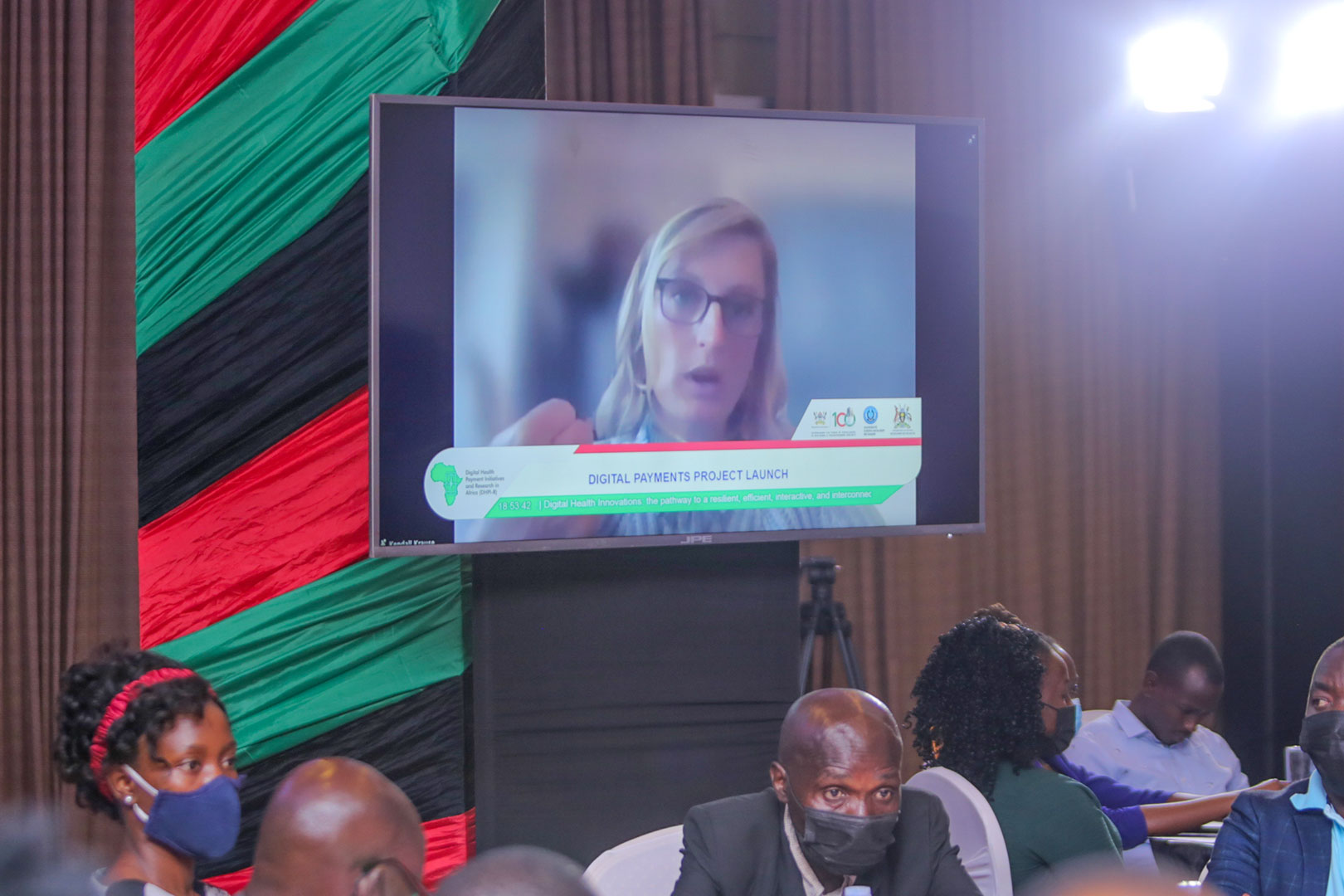
Themed “Digital Health Innovations: the pathway to a resilient, efficient, interactive and interconnected Health system in Sub Saharan Africa,” the project activities will focus on steering digital payments around the health workforce in a bid to improve work performance in sub-Saharan Africa.
Kendall Krause, senior program officer, Global delivery program Bill and Melinda Gates Foundation, noted that the project is a key opportunity to better understand, support, and scale the disposition of digital payments for campaign health workers.
Kendall who made her remarks via zoom from the United States of America said research has shown that there is delayed inconsistence and insecure payments which can easily undermine worker performance and reduce the overall effectiveness of those campaigns.
“This project will do research that will systematically identify the priority problems with payments of health workers and rigorously evaluate solutions. On behalf of the Gates Foundation, we will continue the collaboration to improve the approach to digitize payments.” Kendall added.
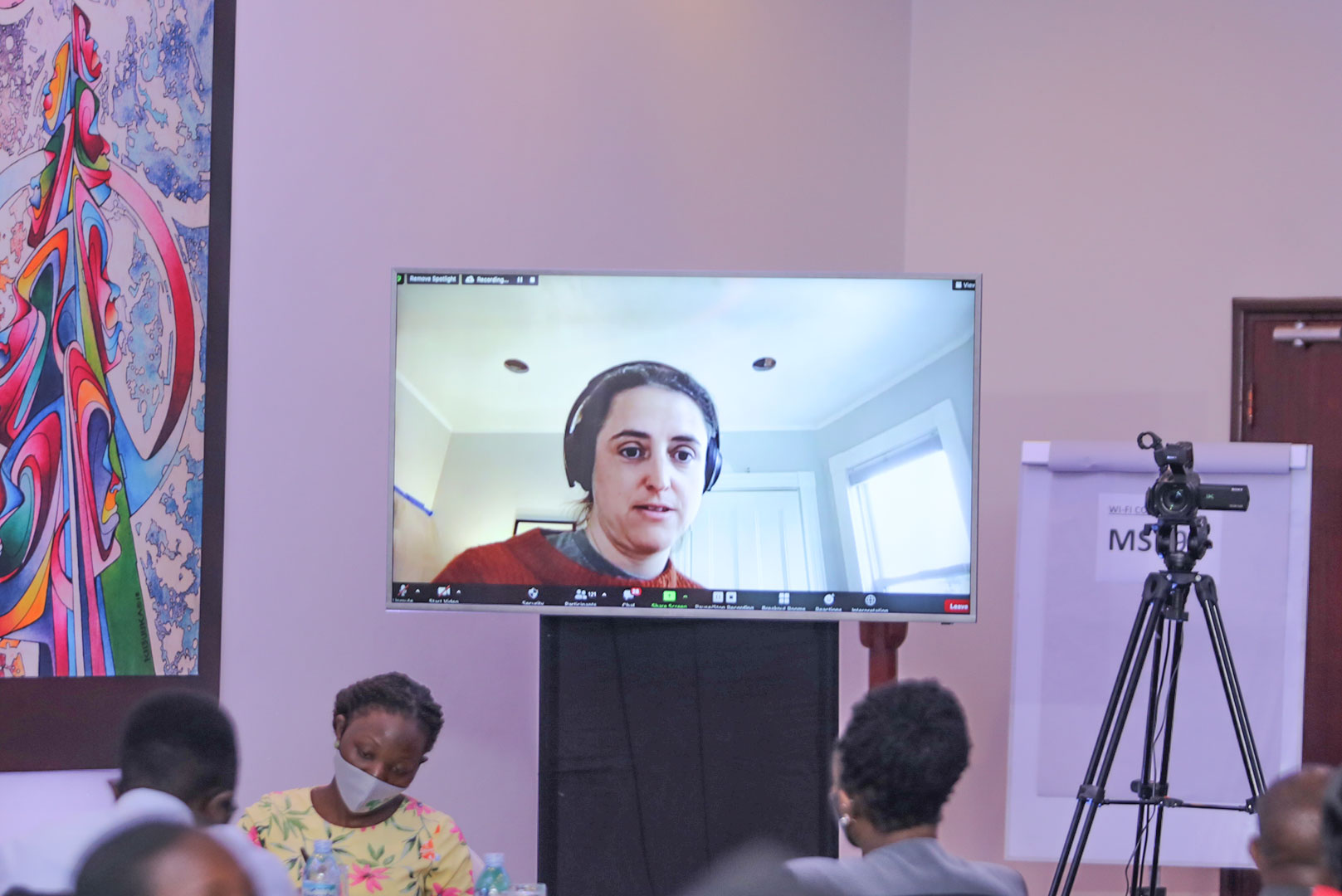
Margaret McConnell, an Associate Professor of Global Health Economics at the Harvard School of Public Health and the keynote speaker at the launch of the digital payments project, whose research combines behavioral economics with field and laboratory experiments to design and evaluate policies to change health and financial behaviors, said the digital payments project will go along away in ensuring that health workers involved in such campaigns are paid their allowances promptly.
During her delivery at the launch virtually, she pointed out that there was a need to have a conceptual understanding of how the digitization of health worker payments can improve health system performance and provide well-being and consequently patient outcomes.
Leah Wanjeri the Digital Finance officer WHO AFRO said some challenges were evident at the time we paid health workers by cash, and this forced us to transition to digital payments.
” For this project, we look forward to the learnings from your research and knowledge we shall get better technically so that when it comes to campaign outcomes, there is a better understanding.” Noted Leah.
On his part, Ibrahima Khaliloulah Día, who heads the Health Digital Unity in the Ministry of Health in Senegal, lauded the collaboration between Makerere University and the Cheikh Anta Diop University of Dakar.
Khaliloulah Día noted that the Senegalese government will support the project for a robust mobile payment ecosystem to ensure that frontline workers involved in the fight against health immunization and other campaigns are paid promptly.
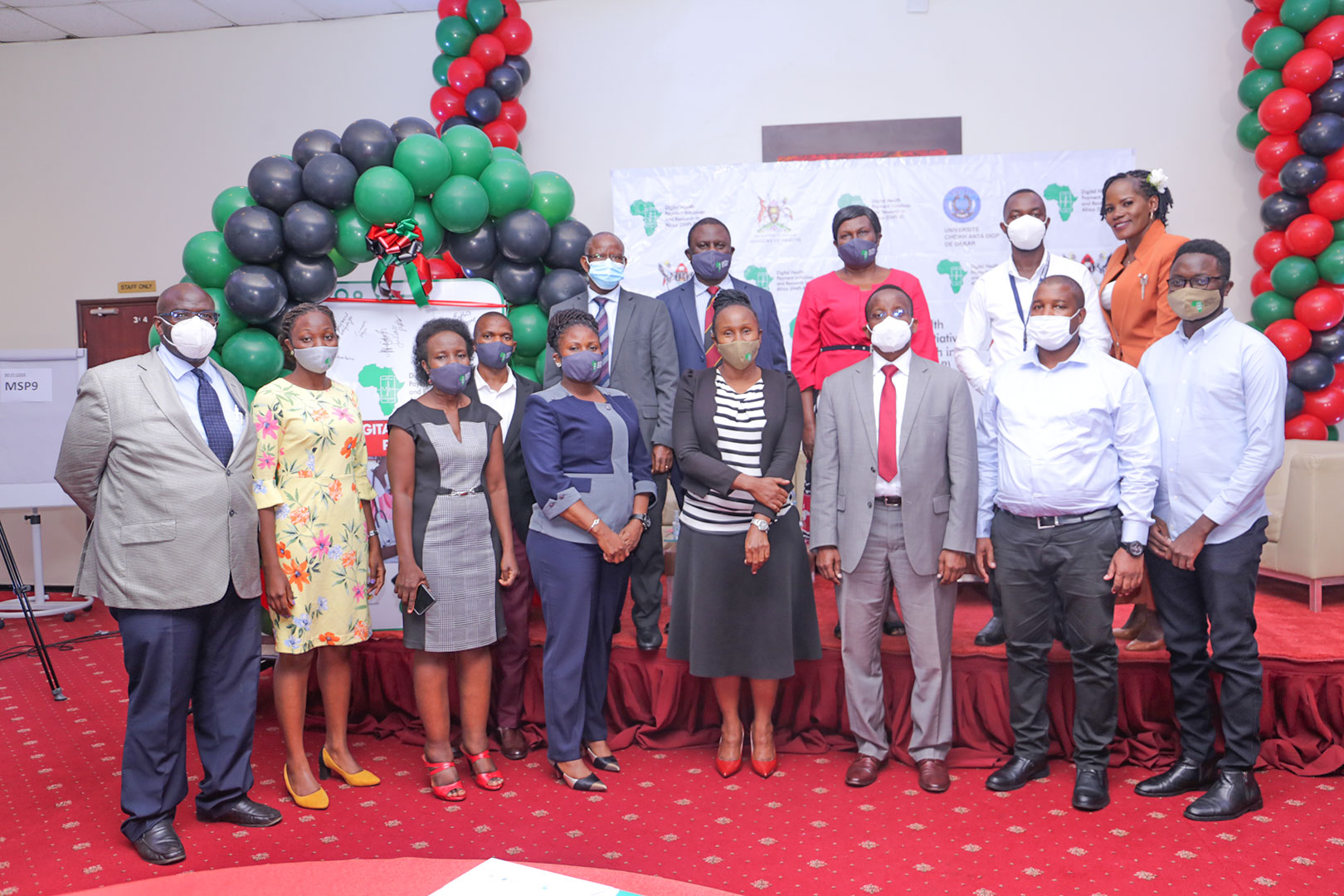
The project launch was presided over by Makerere University deputy Vice-Chancellor, Prof. Umar Kakumba who commended the project team and appreciated MakSPH for the great strides towards making research and innovations at Makerere University more visible.
Prof. Kakumba in his remarks thanked project funders; the Bill and Melinda Gates Foundation, saying research in areas around digital innovations is timely and that the project will be paramount in addressing challenges affecting the health sector.
“Greater adoption of mobile payment innovations should be at the heart of preventive and curative interventions aimed at reducing Africa's burden of infectious diseases and related deaths,” Prof. Kakuma added.
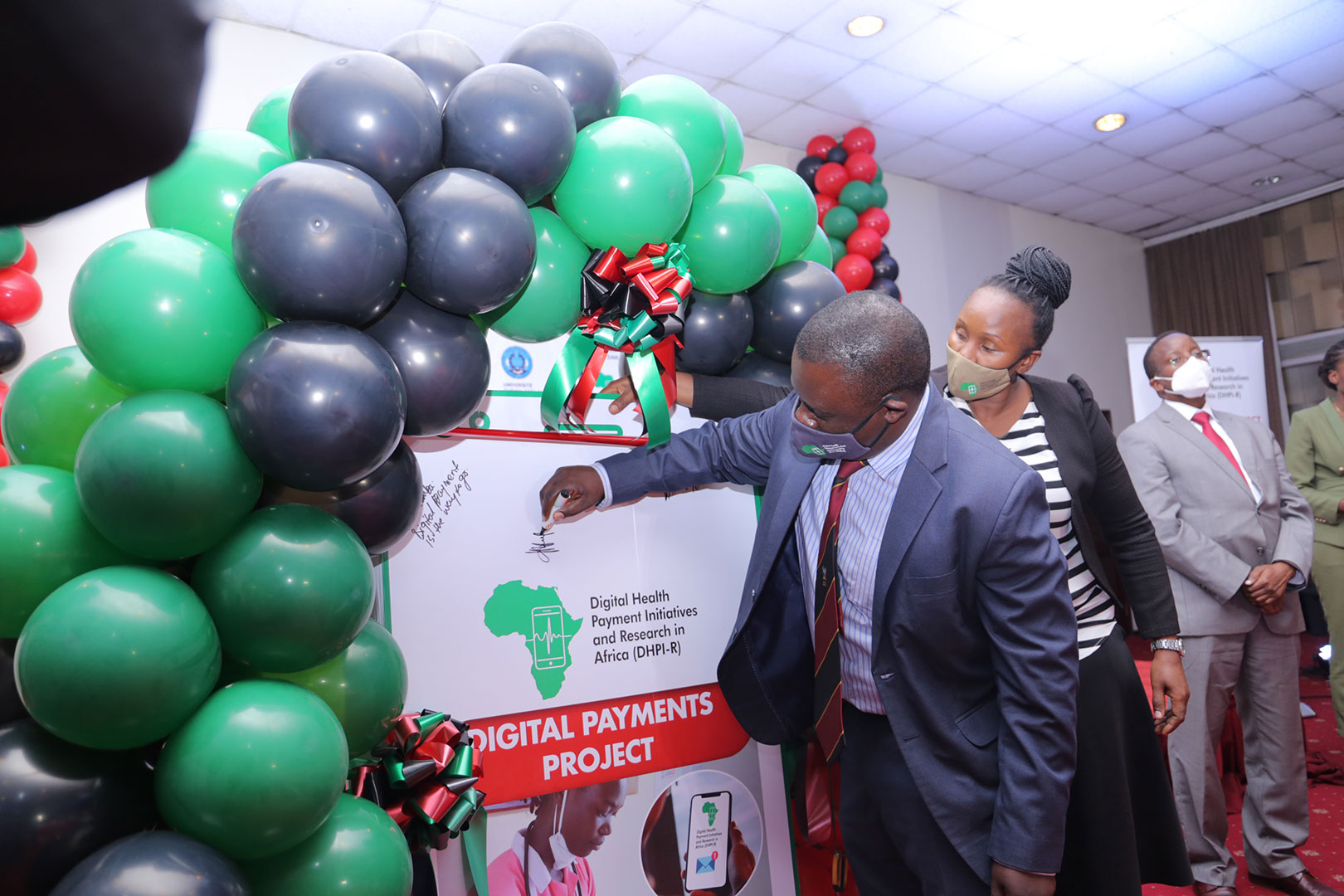
“As a university, we must continue to demonstrate why the Government and development partners must continue funding research and innovations. We should therefore carry out and support research projects in a way that will yield positive impacts on the people we serve and live within our communities. On behalf of Management, we commit to continue supporting all staff whose projects demonstrate the ability to transition Makerere into a research-led University,” he explained.
He said that African countries that prioritize the adoption of mobile payment innovations will be able to attract and retain highly qualified health workers to boost action on communicable diseases.
Article by Judith Grace Amoit - Communications Officer, Digital Payments Project
View entire Launch of the Digital payment project
